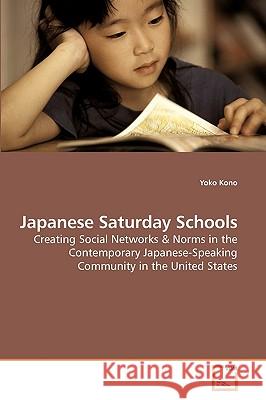Japanese Saturday Schools » książka
Japanese Saturday Schools
ISBN-13: 9783639200959 / Angielski / Miękka / 2009 / 116 str.
The existing literature particularly on Japanese heritage schools and social capital has been minimal despite the populations unique status compared to other ethnic groups. Kono applies Colemans social capital theory to the case study of a Japanese Saturday School (JSS) in California. This study employs a mixed-method approach to examine how JSS creates social capital for families in the Japanese-speaking community, in what form and to what extent social capital manifests in this community, and what benefits families gain from these networks. Data collection through questionnaires and interviews revealed that Japanese mothers use these networks to share information regarding American school system and customs, JSS homework and events, child-development, and child rearing. Data analysis also uncovered that JSS reinforces the norms of parental involvement and Japanese-speaking children attending language schools. Although JSS is an important source of social networks for this population, findings indicated that it is not the primary source. This study highlights that issues of class must be taken into account when investigating how social capital operates in immigrant communities.











